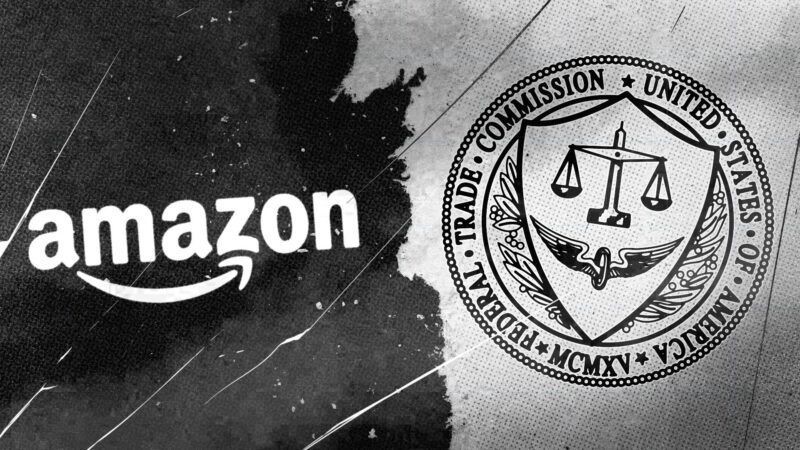FTC Files Antitrust Lawsuit Against Amazon
Among the allegations, the agency charges that Amazon Prime subscribers are incentivized to make the most of their subscription by buying more products.

On Tuesday, the Federal Trade Commission (FTC) announced that it had filed an antitrust lawsuit against Amazon.
In the lawsuit, the FTC, along with the attorneys general of 17 states, call the e-commerce giant a "monopolist" and accuse it of "exploit[ing] its monopolies in ways that enrich Amazon but harm its customers."
FTC Chair Lina Khan said that "today's lawsuit seeks to hold Amazon to account for these monopolistic practices and restore the lost promise of free and fair competition."
In a press release accompanying the lawsuit, the FTC alleges that "Amazon's anticompetitive conduct occurs in two markets—the online superstore market that serves shoppers and the market for online marketplace services purchased by sellers." On its website, Amazon allows third-party merchants to sell products alongside Amazon's offerings. The lawsuit charges that Amazon uses unsavory tactics on competitors, such as making a seller's products harder to find if that seller undercuts Amazon's price for the same product. As a result, "sellers hike prices on their storefronts due to fear of Amazon's penalties" while Amazon's market dominance prevents sellers from going elsewhere.
Other allegations in the suit are downright perplexing. In a section that focuses on Amazon Prime, the subscription service that offers customers perks like free two-day shipping on orders fulfilled by Amazon, the lawsuit charges that "the Prime subscription fee makes subscribers feel as though they must make the subscription fee worth it by making more purchases on Amazon."
In other words, Amazon Prime customers are incentivized to purchase more products in order to feel like they're taking full advantage of the program, which the FTC charges is a monopolistic practice. The agency filed another antitrust suit in June charging that Prime was too easy to sign up for and too difficult to cancel (a process that it says requires six clicks).
Ryan Young, senior economist for the Competitive Enterprise Institute, said in a statement that "Amazon controls roughly ten percent of total retail, and about 38 percent of online retail. For Amazon to look dominant, the FTC had to invent new terms such as the 'online superstore market that serves shoppers' and the 'online marketplace services purchased by sellers.' Even if Amazon monopolizes those specially-defined markets, the FTC will have a difficult time proving consumer harm."
"Under antitrust law, big is not automatically bad," Young says. "Big must behave badly first by harming consumers. The rapid innovation, low prices, and low profit margins across the retail and grocery industries, make it unlikely that Amazon is harming consumers."
In 2017, as a law student, Khan argued in the Yale Law Journal that antitrust law as currently practiced is "unequipped to capture the architecture of market power in the modern economy." She advocated for drastically expanding the existing interpretation of antitrust regulation in order to encompass firms like Amazon that amass significant market power, even if customers are largely pleased with the service they receive.
In Khan's brief tenure as FTC chair, she has steered the agency in just such a direction, though so far largely unsuccessfully: In February, a federal judge rejected the FTC's attempt to block Facebook's parent company Meta from acquiring virtual reality platform Within Unlimited. And in July, Microsoft was allowed to purchase video game maker Activision Blizzard, again despite the FTC's wishes.


Show Comments (48)